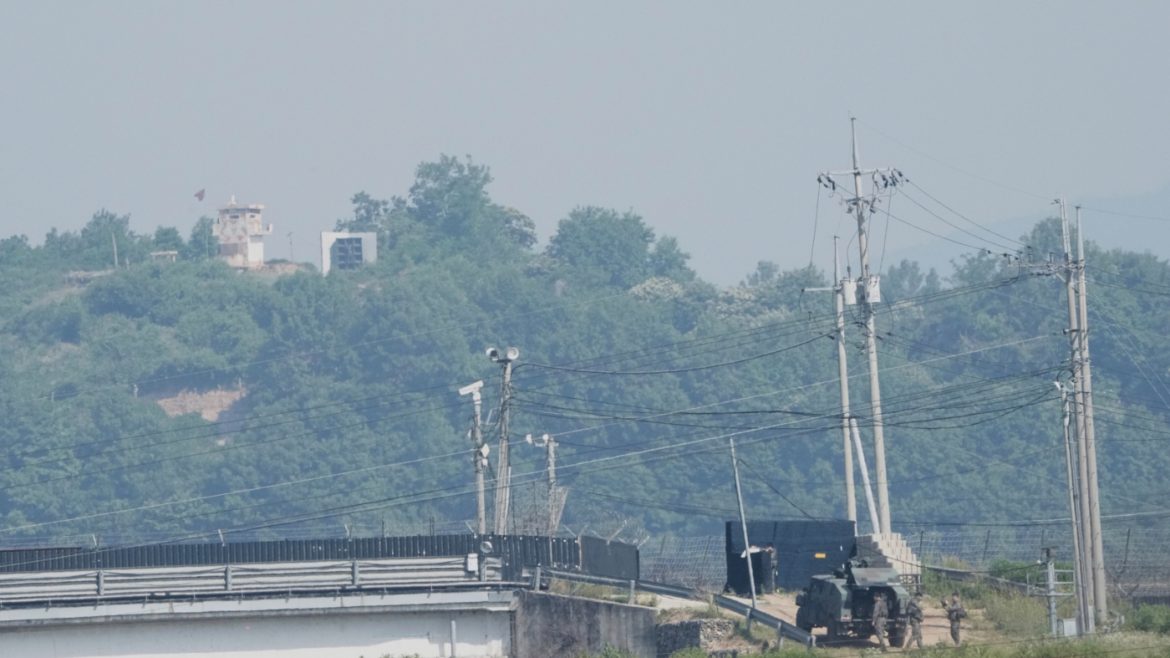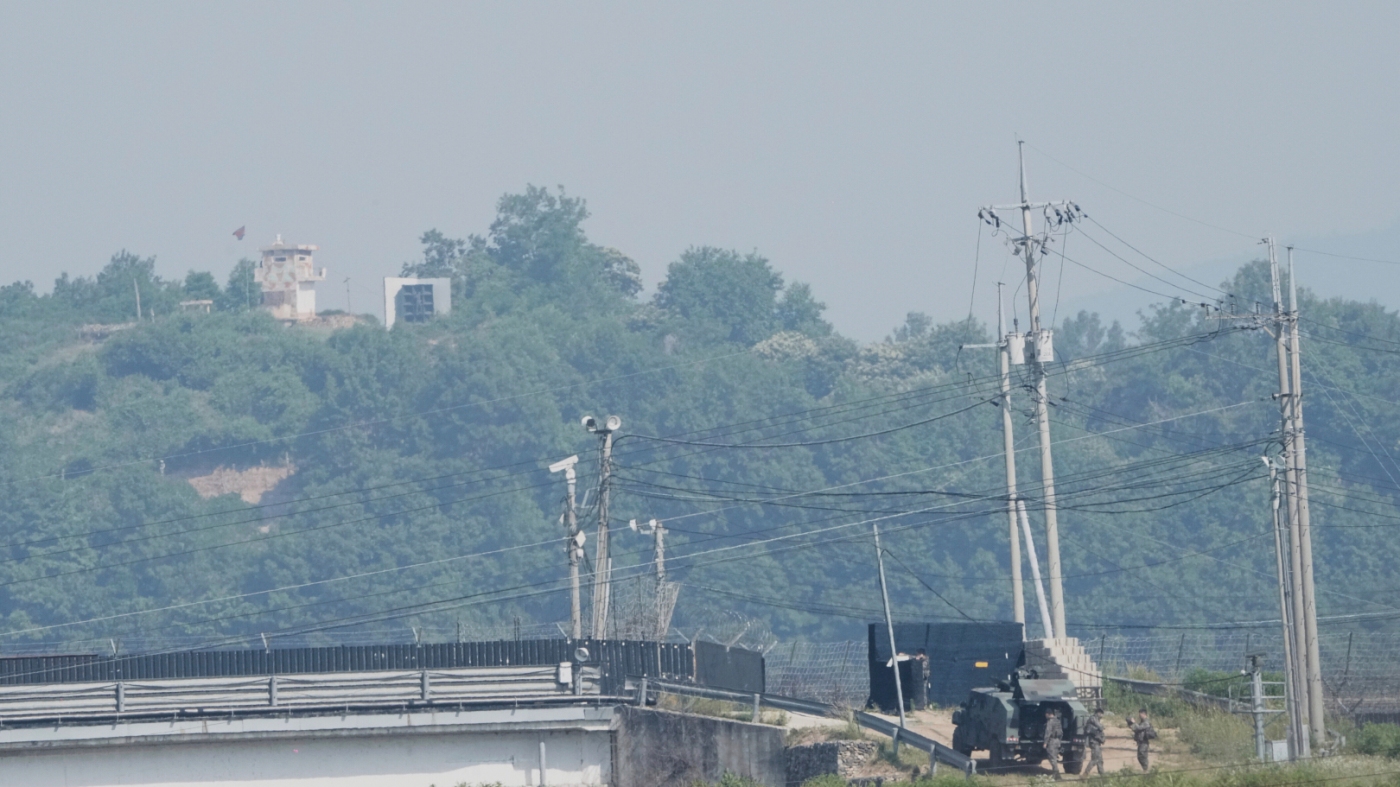The Demilitarized Zone (DMZ) is a stark reminder of the division that has defined the Korean Peninsula for nearly seven decades. Stretching 250 kilometers across the peninsula, this 4-kilometer-wide strip of land is one of the most heavily militarized borders in the world. Despite its formidable defenses, individuals occasionally attempt the perilous crossing, seeking refuge in South Korea. Recently, an unidentified North Korean man successfully traversed this dangerous divide, raising critical questions about motivations, security, and the ongoing tensions between the two Koreas.
The Gauntlet: Understanding the DMZ
The DMZ is more than just a line on a map; it is a heavily fortified barrier bristling with soldiers, landmines, and barbed wire. Established in 1953 at the end of the Korean War, the DMZ comprises two kilometers on each side of the Military Demarcation Line (MDL), the actual border. Both sides are heavily guarded by soldiers, fortified with fences, tank traps, and minefields. Guard posts are strategically positioned to monitor and deter any unauthorized crossing. The terrain itself, characterized by dense vegetation and rugged landscapes, adds another layer of difficulty to any attempted passage.
The DMZ represents not only a physical barrier but also a psychological one, embodying decades of hostility and mistrust. It is a symbol of the enduring Cold War, a reminder of the unresolved conflict between North and South Korea. The DMZ’s existence is a testament to the failure of diplomacy to resolve the Korean War, leaving the peninsula in a state of perpetual tension.
Motivations: Why Risk Everything?
Understanding the reasons behind such a risky decision requires examining the conditions within North Korea. While it is impossible to know the specific motivations of this individual, several factors commonly drive North Koreans to defect:
- Economic hardship: North Korea’s centrally planned economy has struggled for decades, leading to widespread poverty and food shortages. While the situation has improved somewhat in recent years, many North Koreans still face significant economic challenges, fueling a desire for a better life.
- Political repression: North Korea operates under an authoritarian regime that severely restricts personal freedoms. Citizens are subject to constant surveillance, and any dissent is met with harsh punishment. This lack of freedom and the fear of persecution can drive individuals to seek asylum elsewhere.
- Access to information: Despite the regime’s efforts to control information, exposure to outside media, often smuggled in via USB drives or DVDs, can shatter the carefully constructed image of North Korea. This exposure can lead to disillusionment and a desire for a different life.
- Family reunification: Some defectors may have family members who previously fled to South Korea and wish to reunite with them. This longing for connection can outweigh the risks associated with crossing the DMZ.
The man’s attempt to defect is more than a simple act of border crossing; it is a personal and political statement. He took an enormous risk, with the potential reward of freedom. His journey is a testament to the resilience of the human spirit and the yearning for a better life, even in the face of seemingly insurmountable obstacles.
Security Implications: A Breach in the Wall?
The successful crossing raises serious concerns about the security of the DMZ. How did this individual manage to evade detection and navigate such a heavily guarded area? Several possibilities exist:
- Lapses in surveillance: Despite the high level of security, gaps in surveillance can occur, especially in areas with challenging terrain or during periods of reduced visibility.
- Inside knowledge: It is possible that the defector possessed some knowledge of the DMZ’s layout, patrol patterns, or weaknesses in the defenses.
- Desperation and determination: The individual’s motivation and determination could have played a significant role in overcoming the obstacles. A person driven by a strong desire for freedom might be willing to take risks that others would not.
- Possible accidental crossings: Experts have suggested that at least some crossings may be accidental, occurring as North Korean troops add anti-tank barriers and plant mines near the DMZ.
Regardless of the specific circumstances, this incident underscores the need for constant vigilance and improvements in security measures along the DMZ. The DMZ is a critical buffer zone, and any breach, intentional or accidental, has the potential to escalate tensions between the two Koreas.
The Aftermath: Interrogation and Integration
Following his apprehension, the North Korean man is likely undergoing a thorough interrogation by South Korean authorities. This process aims to determine his motivations, gather intelligence about North Korea, and assess any potential security risks. The interrogation process is crucial, as it helps South Korean authorities understand the defector’s background, intentions, and any potential threats he may pose.
If deemed a genuine defector, he will enter a resettlement program designed to help him adjust to life in South Korea. This program typically includes language training, vocational skills development, and psychological counseling. Adapting to a new culture and a vastly different way of life can be challenging, and many North Korean defectors struggle with social isolation and economic hardship in South Korea. The resettlement process is a critical step in ensuring that defectors can successfully integrate into South Korean society.
A Recurring Issue: Historical Context and Recent Events
This incident is not an isolated event. Throughout the decades, numerous North Koreans have attempted to defect to the South, both across the DMZ and via third countries. In recent years, there have been several notable incidents:
- Increased border activity: Reports indicate increased activity along the DMZ, with North Korean troops adding anti-tank barriers and planting mines. This activity may be linked to accidental crossings or attempts to strengthen border defenses.
- Warning shots fired: On several occasions, South Korean troops have fired warning shots at North Korean soldiers who briefly crossed the MDL. These incidents highlight the potential for escalation and the need for careful management of the border.
- Previous defections: In June of last year, North Korean troops crossed the border three times, prompting South Korea to fire warning shots. This shows that crossings, whether intentional or accidental, are not uncommon.
The continued attempts to cross the DMZ underscore the enduring appeal of South Korea and the ongoing challenges within North Korea. The DMZ remains a symbol of the division that has defined the Korean Peninsula for nearly seven decades, and the continued attempts to cross it highlight the ongoing need for dialogue, reconciliation, and ultimately, the peaceful reunification of the Korean peninsula.
A Fragile Peace: Implications for Inter-Korean Relations
The defection comes at a sensitive time in inter-Korean relations. Despite occasional periods of dialogue and cooperation, tensions remain high, fueled by North Korea’s nuclear weapons program and its continued military provocations. While a single defection is unlikely to trigger a major crisis, it can further strain relations and undermine trust between the two Koreas.
North Korea may view the incident as a provocation or an attempt by the South to undermine its regime. South Korea, on the other hand, must balance its humanitarian obligations to defectors with the need to maintain stability on the peninsula. The defection highlights the delicate balance that must be maintained in inter-Korean relations, as well as the ongoing need for dialogue and cooperation.
Echoes of Hope Across a Divided Land
The successful crossing of the DMZ by a North Korean man is a powerful symbol of hope and a reminder of the enduring human desire for freedom. While the DMZ remains a formidable barrier, it cannot completely block the flow of information and ideas. This defection is a testament to the resilience of the human spirit and the yearning for a better life, even in the face of seemingly insurmountable obstacles.
It also highlights the ongoing need for dialogue, reconciliation, and ultimately, the peaceful reunification of the Korean peninsula. The story of this man, whose name remains unknown, is etched into the larger narrative of a divided nation, a narrative filled with both sorrow and the unwavering hope for a future where such desperate journeys are no longer necessary. The DMZ may be a symbol of division, but it is also a reminder of the enduring human desire for freedom and the ongoing struggle for reunification.


